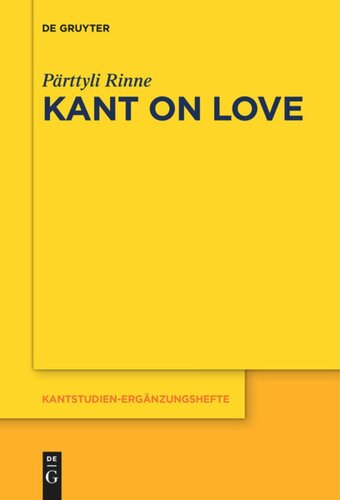

Most ebook files are in PDF format, so you can easily read them using various software such as Foxit Reader or directly on the Google Chrome browser.
Some ebook files are released by publishers in other formats such as .awz, .mobi, .epub, .fb2, etc. You may need to install specific software to read these formats on mobile/PC, such as Calibre.
Please read the tutorial at this link: https://ebookbell.com/faq
We offer FREE conversion to the popular formats you request; however, this may take some time. Therefore, right after payment, please email us, and we will try to provide the service as quickly as possible.
For some exceptional file formats or broken links (if any), please refrain from opening any disputes. Instead, email us first, and we will try to assist within a maximum of 6 hours.
EbookBell Team

4.1
100 reviews“This is an immensely useful resource for other scholars and philosophers wishing to understand Kant’s views on love.”
– Rae Langton, University of Cambridge
What did Immanuel Kant really think about love? In Kant on Love, Pärttyli Rinne provides the first systematic study of ‘love’ in the philosophy of Kant. Rinne argues that love is much more important to Kant than previously realised, and that understanding love is actually essential for Kantian ethical life.The study involves two interpretative main propositions. First, that love in Kant includes an underlying general division of love into love of benevolence and love of delight. Further, the study divides Kant’s concept of love into several aspects of love, such as self-love, sexual love (and love of beauty), love of God, love of neighbor and love in friendship. A chapter of the book is devoted to each of these aspects, beginning with the lowest forms of self-love as crude animality, and moving gradually upwards towards idealised ethical notions of love. One way or another, the major aspects relate to the general division of love.This analytical trajectory yields the second main proposition of the study: Together, the aspects of love reveal an ascent of love in Kant’s thought. Perhaps surprisingly, for Kant, love permeates human existence from the strongest impulses of nature to the highest ideals of morally deserved happiness.